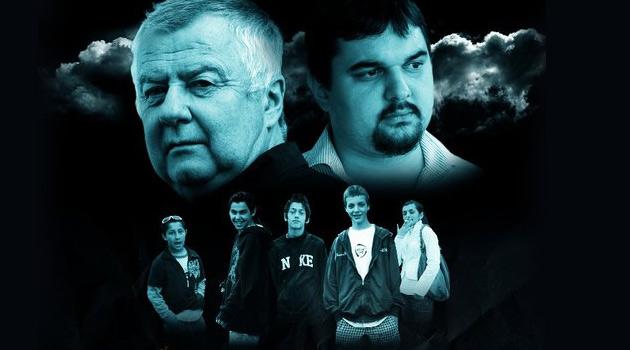Is the "Bastards" film series a serious portrayal of the environment in the Czech "practical schools", or is it just a sampling of generalizations, prejudices and stereotypes about Romani people? Martina Šafářová, a student at the University of Pardubice, has analyzed Magnusek’s series in her thesis.
Šafářová has also interviewed the performers in the film, who say they feel it humiliates them and that they were manipulated into participating in it. Her work is highly topical at a time of increasing discussion of how to reform the "practical schools" and of inclusive education, and the piece by her below discusses these aspects.
Who is the bastard here?
If we acknowledge the degree to which the media influences our lives, then we should also be aware of or at least reflect on the degree to which "reality" is depicted in the media, how it is handled, who is doing the handling, and whom the media are targeting. However, those involved aren’t just media in the abstract – they are individual authors, consumers and publishers.
As the Czech saying has it, "Hunger is the best chef". Consumers frequently influence the film market and their hunger for shocking stories is fed with pleasure by whomever with whatever, depending on the refinement of the "customer’s" taste.
Humiliation and shame
Very few audiences or reviewers of the "Bastards" fim trilogy take a calm, even-handed view of it. I had the opportunity to witness this as a resident of the town where it basically "all began".
The film is allegedly based on reality and interwoven with the experiences of the author of the screenplay, Tomáš Magnusek, who drew his inspiration from the "practical schools". When the first film in the trilogy came out in 2010, I naturally wanted to see it.
I don’t know what in it was real, but in any event it made an unpleasant impression on me, as it did on other people, combined with feelings of fear. When I began my college studies, I began to reflect on the fact that the way in which the purported reality had been constructed and conveyed by the film was not really ok, and its stereotypical depiction of Romani people wasn’t either.
Furthermore, it was not clear to me why and with what motivation the children who were the real-life pupils of the screenwriter (and later producer) of the film had performed in it when its message was so clearly "against them". That question later became the pivotal research question of my Bachelor’s thesis.
I was interested in the author’s standpoint and in his motivation for making a film on the topic of the "practical schools", and I was also interested in why he had chosen this specific format for depicting those matters. First, however, I met with the family members of some of the non-actors, the former pupils who had created the main roles in the film.
I was not very surprised when I encountered their reactions, which were primarily those of anger, humiliation and shame. Those were the predominant feelings among the performers, who today regret the fact that they let themselves be tempted by the opportunity to perform in the film, which they said had been described to them as a light comedy – and who at the age of 15 would be able to refuse such an offer from their teacher?
How to combat antigypsyism in the media?
When they saw the film, however, the children and their parents were shocked. The parents had not anticipated that their children would be depicted in the context of an antigypsyist media discourse, and the children had not suspected it either.
What followed was a wave of physical and verbal attacks on them by both the majority society and their fellow Roma. Other Roma frequently pointed out that the entire film humiliates and ridicules Romani people, tarring them all with the same brush and presenting them as monsters not just to the majority society, but also to the school system.
The film unnecessarily generalizes about Romani people, working with hoaxes and stereotypes that are widespread about them. It solves nothing, showing neither the causes for the behavior depicted nor any closer context about "who actually has a stake in this" – mainly, the author of the screenplay.
I wanted to ask the author about this in person and since we live in the same region I presumed that was not an unrealistic aspiration. Why did he make the "Bastards" series?
"…I simply believe those schools should not be closed. That’s why I wanted to make the film, because I really do not want those schools to close… That is basically what the question of inclusion is about, right?" the director responded.
I am not certain whether this is clear to the average viewer – do they see this as a film about the "practical schools", or about "bastards"? If the film has had a negative impact on the lives of the non-actors in it, on their families and neighborhoods, then what impact has it had on the perception of Romani people nationwide?
Is it possible to work on this somehow – is it possible to somehow avoid stigmatization by the media? My presumption right now is that stigmatization by the media can only be responded to through the media.
News server Romea.cz will publish excerpts from Šafářová’s thesis of her interviews with the director and the performers in a forthcoming article.
